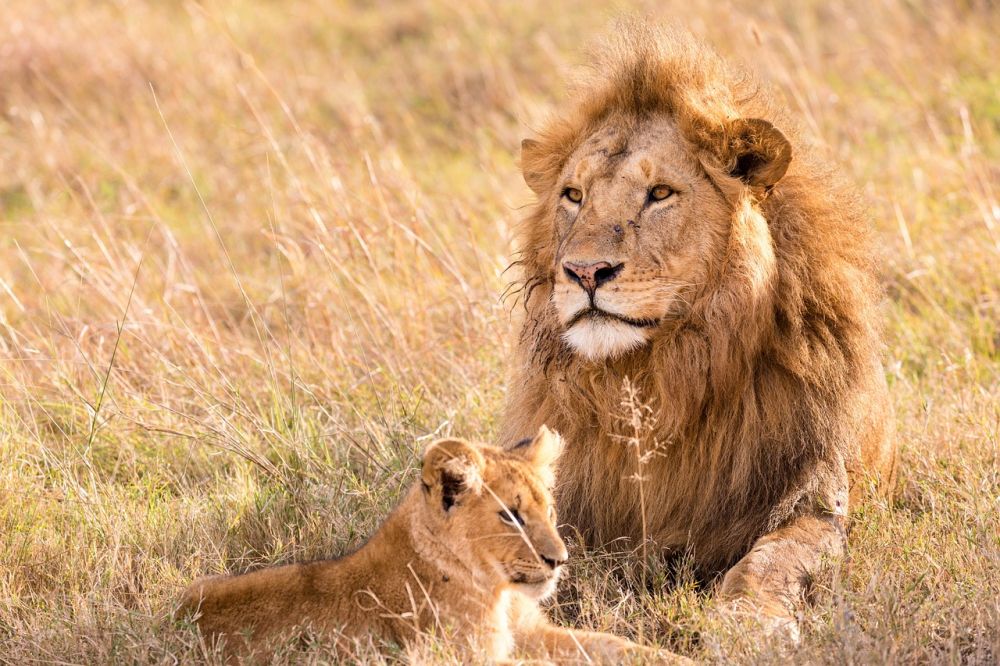Safari Africa: A Journey into the Heart of the Wild

Introduction:
Safari Africa, a dream for many adventure seekers and wildlife enthusiasts, offers a once-in-a-lifetime opportunity to witness the mesmerizing beauty of the African wilderness. In this comprehensive guide, we will delve into everything you need to know about embarking on a safari in Africa. Whether you are a seasoned traveler or a first-time safari-goer, this article will provide you with valuable insights and tips to make your African safari experience truly unforgettable.
1. Understanding Safari Africa:

A safari in Africa is an exhilarating adventure that takes you through vast landscapes, diverse ecosystems, and the magnificent animal kingdom. To embark on such a journey, it is essential to understand the key elements that make a safari in Africa unique:
– Breathtaking Wildlife: Africa boasts an incredible array of wildlife, including the iconic Big Five (elephant, rhinoceros, lion, leopard, and buffalo), along with numerous bird species, antelopes, giraffes, and more. Witnessing these majestic creatures in their natural habitat is an awe-inspiring experience.
– Rich Cultural Heritage: Apart from the wildlife, Africa is also home to diverse cultures and communities. Interacting with local tribes and learning about their traditions and customs can provide a deeper understanding of the African way of life.
– Stunning Landscapes: From the vast savannahs of the Serengeti to the lush wetlands of the Okavango Delta, Africa’s landscapes are simply mesmerizing. Each region offers a unique experience, with its own flora, fauna, and geographical features.
– Conservation Efforts: Safaris in Africa play a vital role in supporting local conservation initiatives. Many reserves and national parks focus on protecting endangered species and ecosystems, ensuring their preservation for future generations.
2. A Historical Perspective:
The concept of safari in Africa dates back to the 19th century when European explorers and hunters ventured into the continent’s unexplored wilderness. Initially, safaris were primarily hunting expeditions, driven by the desire to acquire exotic trophies. However, over time, the focus shifted towards wildlife conservation and sustainable tourism. This transformation was largely influenced by prominent figures such as Theodore Roosevelt and the emergence of safari lodges and responsible tour operators.
In the early 20th century, the African safari started gaining popularity among adventurers and nature lovers from around the world. The introduction of wildlife reserves and national parks further contributed to the growth of safari tourism, facilitating conservation efforts and providing visitors with regulated access to Africa’s natural wonders.
3. The Evolution of Safari Africa:
As safaris gained popularity, the initial notion of hunting gradually faded away, giving rise to the concept of photographic safaris. Today, the majority of safari experiences focus on wildlife photography, allowing visitors to capture intimate moments and preserve memories of their encounters with Africa’s captivating creatures.
Advancements in technology have also transformed the safari experience. With the emergence of digital cameras and smartphones, capturing high-quality photographs and videos has become more accessible than ever. Furthermore, the internet and social media platforms have played a significant role in promoting and sharing safari experiences, inspiring a new generation of travelers to embark on their own African adventures.
Safari operators have adapted to these changes by incorporating modern amenities, such as luxurious lodges and tented camps, while still maintaining a commitment to sustainable and responsible tourism practices. These developments have made safaris more accessible and appealing to a wider range of travelers, ensuring that the magic of Africa’s wilderness can be experienced by all.
Conclusion:
Embarking on a safari in Africa is an unparalleled journey into the heart of the wild. From the enchanting wildlife and breathtaking landscapes to the rich cultural heritage and conservation efforts, Safari Africa offers a life-changing experience for adventurers and nature enthusiasts alike. With its historical roots, evolving trends, and deep connection to nature, a safari in Africa will leave you with memories to cherish for a lifetime.
So, pack your bags, prepare your camera, and get ready to immerse yourself in the wonders of Safari Africa. Whether you choose to explore the vast plains of the Maasai Mara, witness the dramatic wildebeest migration in the Serengeti, or venture into the untamed Okavango Delta, one thing is certain an African safari will fill your heart with awe and ignite your passion for wildlife and adventure.
FAQ
How has safari in Africa evolved over time?
What animals can be seen on a safari in Africa?
What is the significance of safari in Africa for conservation?
Flere Nyheder
Thailand Rejse: En Eventyrlig Oplevelse gennem Tid og Sted
Introduction: Safari Africa, a dream for many adventure seekers and wildlife enthusiasts, offers a once-in-a-lifetime opportunity to witness the mesmerizing beauty of the African wilderness. In this comprehensive guide, we will delve into everything ...
Peter Mortensen
18 januar 2024
Rejse til Vietnam – Opdag perlen i Sydøstasien
Introduction: Safari Africa, a dream for many adventure seekers and wildlife enthusiasts, offers a once-in-a-lifetime opportunity to witness the mesmerizing beauty of the African wilderness. In this comprehensive guide, we will delve into everything ...
Peter Mortensen
18 januar 2024
Rejse Thailand: En Dybdegående Oplevelse i Det Smukke Land
Introduction: Safari Africa, a dream for many adventure seekers and wildlife enthusiasts, offers a once-in-a-lifetime opportunity to witness the mesmerizing beauty of the African wilderness. In this comprehensive guide, we will delve into everything ...
Peter Mortensen
18 januar 2024
Rejse til Maldiverne: Paradisets juveler venter dig
Introduction: Safari Africa, a dream for many adventure seekers and wildlife enthusiasts, offers a once-in-a-lifetime opportunity to witness the mesmerizing beauty of the African wilderness. In this comprehensive guide, we will delve into everything ...
Peter Mortensen
17 januar 2024











